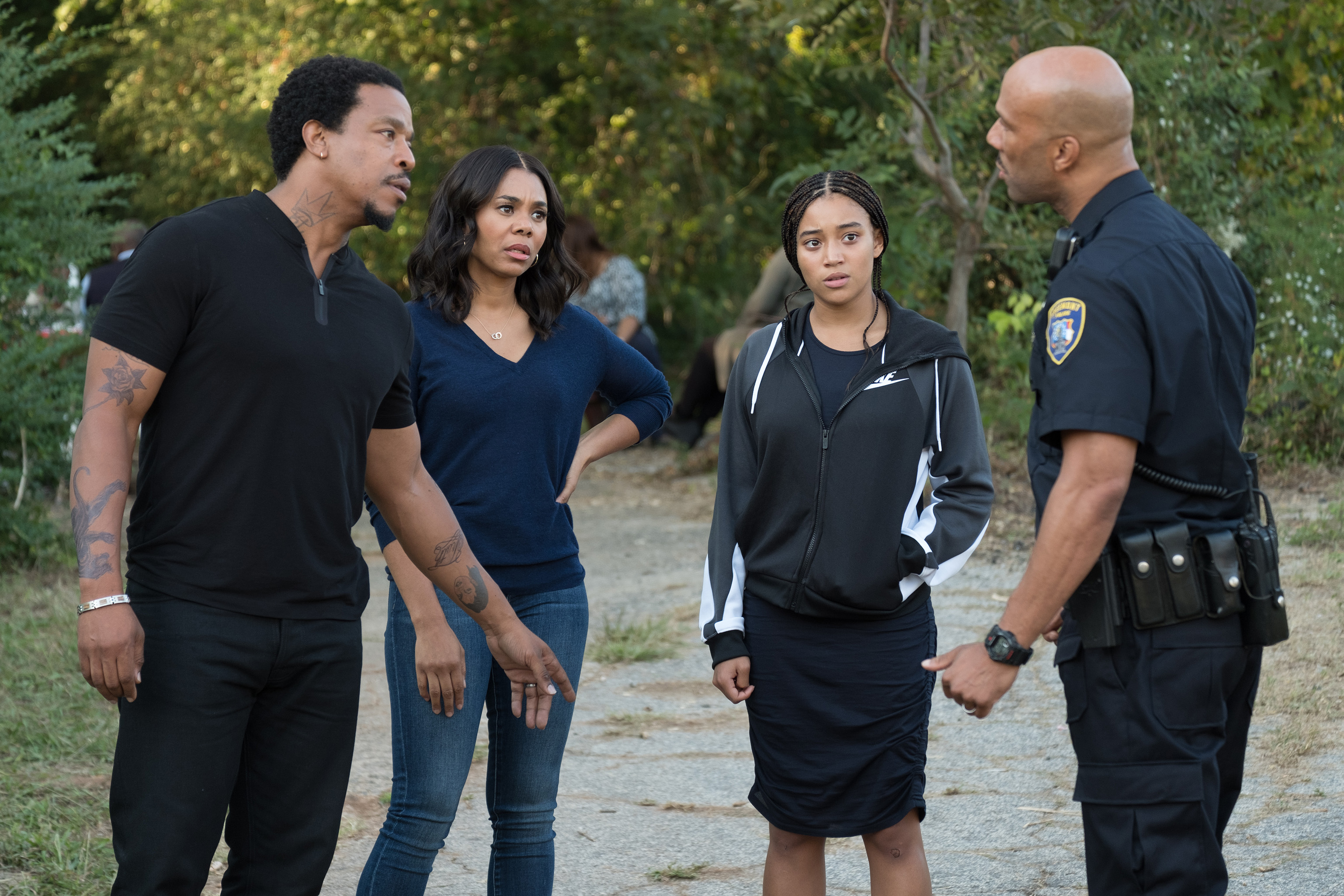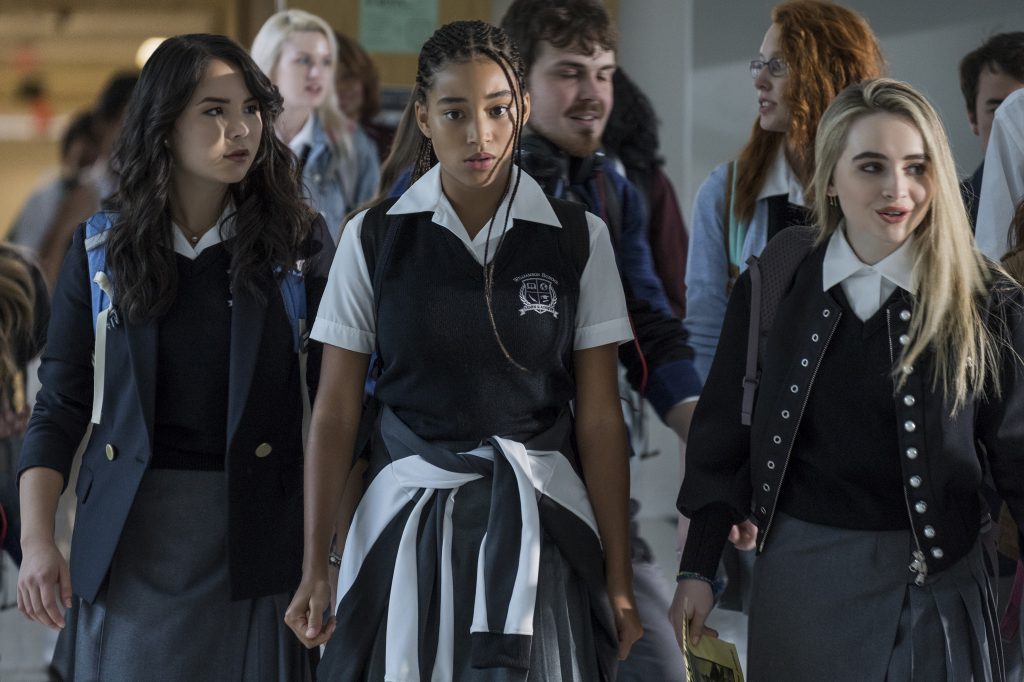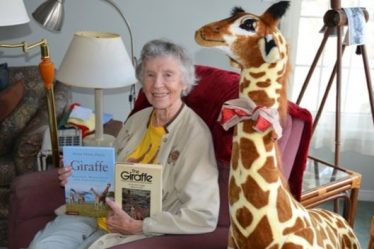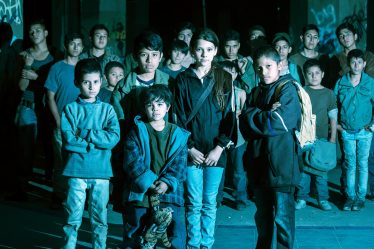

Opening in wider release this weekend is the film adaptation of The Hate U Give, the bestselling novel by Angie Thomas. Director George Tillman Jr (Soul Food, Barbershop) brings to the screen the story of Starr Carter (Amandla Stenberg), who is the only eye-witness to the fatal shooting of her childhood best friend Khalil at the hands of a police officer. The movie shows a marked and perfectly timed shift from imaginary dystopian future worlds represented in film, to the all too alive-and-well dystopia many in our society experience as life on a daily basis. In The Hate U Give, it isn’t a society that makes children fight each other after being chosen through a lottery, it’s a society where the balance of power places whole communities in danger. It’s the one we all live in now, whether we are aware of it or not, and it is expressed onscreen through strong, believable characters in such a powerful way that it should leave audiences considering how they too can help make positive changes. It reminds us all that, without taking a stand, the danger and darkness for the marginalized will only continue to increase.
Starr is challenged by living in two very distinct worlds. She has to exist as two versions of herself using what’s called ‘code switching’, which is a survival tactic folks in the the African-American community use by changing behavior to suit different environments. She uses it in an effort to navigate through her high school and home life. As one of only a handful of people of color attending an exclusive private school, she portrays herself one way, never using slang, even as her white friends do. She is there because one of her two best friends was shot in a drive-by shooting when she wasn’t even a teen, so her mom Lisa (Regina Hall) and dad Maverick (Russell Hornsby) wanted a safer environment for her and her siblings. Her second self is who she is at home, living in working-class Garden Heights with her close-knit family, where shootings are a regular occurrence, and working for the most powerful gang is a clear and ever-present way to make ends meet. There she can speak in the vernacular of her community, and enjoy hip-hop without feeling self-conscious, but she finds herself judged as “acting white”. Everything gets thrown into turmoil when she witnesses her other best friend get shot and killed at a traffic stop. Should she speak up and take a stand about what she saw, even if it means putting her family in danger from the local gang boss (Anthony Mackie) with whom her dad used to be associated?
There is a lot of tension and lots of questions start to form as viewers experience the story from Starr’s perspective. How does someone stay positive in such a risky world, one in which self-control or being a good person bears little effect on reality? When is it better to take a stand if it puts everyone at risk, even when it’s the right thing to do? The entire story is believable from the beginning, and we can’t help but root for such an eternal optimist and joyful teen. There are lots of little moments of heartbreak, especially one of the opening scenes when Maverick gives his kids “the talk”, in which he has to teach them how to stay alive in the presence of the police. Russell Hornsby has been a fan favorite since his co-starring days on the TV show Grimm, and The Hate U Give offers him yet another opportunity to show his considerable acting talent. The film, however, belongs to Stenberg. She can speak volumes with just a look or small gesture, and she handles the dialogue, whether in voiceover or in scenes with co-stars, with an organic authenticity that brings the script to life.
This is the last screenplay by writer/director Audrey Wells, who passed away from cancer on the date of the film’s premiere. She interpreted the novel and brought the important elements to the screen, and it is a part of her legacy about which she and her family can feel pride. Also integral to the finished script, though uncredited, was Tina Mabry, which is a good thing. Her specific contributions are not listed, but inclusion of a woman of color in the writing of a screenplay about a woman of color seems pretty important to the authenticity of dialogue, especially when the dialogue is one of the most successful elements of The Hate U Give.
The name of the film is taken from a song by Tupac Shakur, “THUG LIFE”, as in ‘The Hate U Give Little Infants ‘Effs’ Everybody’. As such, music is an important aspect of the film. There are a number of songs integrated into the film from musicians including Tupac himself, as well as Kendrick Lamar, Pusha T, Travis Scott, with Arlissa for original songs and Bobby Sessons for the title track. The score by Dustin O’Halloran is also very impactful, and offers a balance of peace and growing tension, much like Starr’s life. You can read an interview I did with him over that TheCredits.org.
This is one movie anyone who loves YA or teen stories should see, but it is also for fans of well constructed, authentic-feeling dramas that get under your skin, yet leave you energized. It is also an opportunity to support a film in which diversity, depth of subject, and skillful filmmaking come together to great success, one in which a female protagonist carries the film ably and the actress portraying her reaffirms her place in Hollywood. May this lead to her getting every script with strong young women, not just those written for girls of color.
5 out of 5 stars



